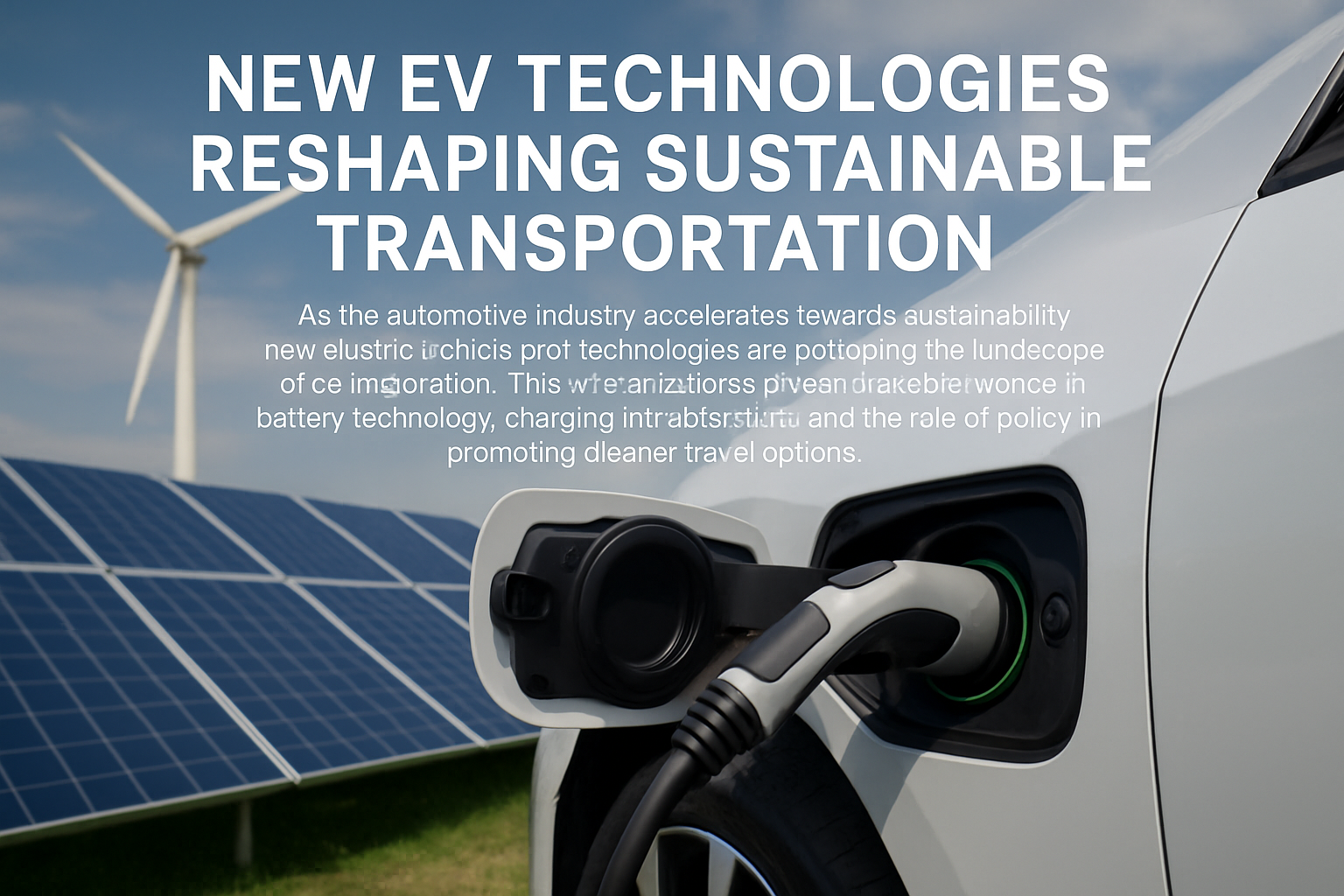Location
Mount Vernon, WA 98274
Location
Mount Vernon, WA 98274

As the automotive industry accelerates towards sustainability, new electric vehicle (EV) technologies are reshaping the landscape of transportation. This article explores recent advancements in battery technology, charging infrastructure, and the role of policy in promoting cleaner travel options.
The automotive industry is undergoing a dramatic shift as manufacturers pivot towards electric vehicles (EVs). With growing concerns over climate change and air quality, the demand for sustainable transportation solutions has never been higher. Major automakers are investing billions into EV technology, with companies like Tesla, Ford, and General Motors leading the charge.
At the heart of this revolution is the advancement in battery technologies. New lithium-ion batteries are not only becoming more efficient but also more affordable. Researchers are exploring solid-state batteries, which promise higher energy densities and faster charging times compared to their liquid counterparts. According to a recent study by the International Energy Agency, the global EV battery market is expected to grow significantly, driven by innovations that enhance performance and lifespan.
However, the rise of electric vehicles requires an equally robust charging infrastructure. Governments and private companies are investing heavily in charging stations, with initiatives to make them more accessible to the public. Fast-charging networks are being established along major highways, allowing for longer road trips without the anxiety of running out of battery. Recent partnerships between tech companies and automotive manufacturers aim to integrate charging stations into navigation systems, providing real-time updates on availability and charging times.
Policy plays a critical role in the transition to electric vehicles. Many countries are implementing incentives for consumers to purchase EVs, such as tax credits and rebates. Furthermore, some regions are setting ambitious goals to phase out gasoline-powered vehicles entirely within the next few decades. These regulations are designed not only to reduce greenhouse gas emissions but also to stimulate economic growth in the green technology sector.
As electric vehicles become the norm, the future of transportation is looking brighter and more sustainable. The integration of smart technology, such as AI-driven traffic management systems, will further enhance the efficiency of EVs on the road. With continued investment in research and development, the automotive industry is well on its way to creating a cleaner, more sustainable future for transportation.